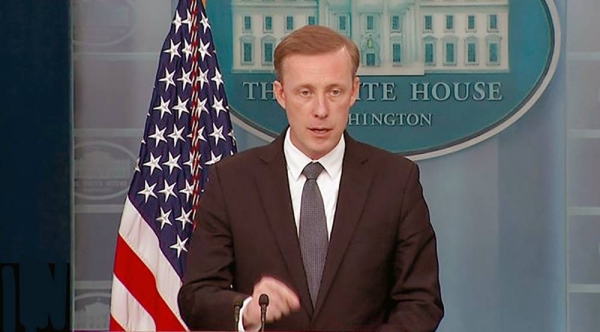
WASHINGTON, Aug 16 (Reuters) - President Joe Biden said on Monday he stood "squarely behind" his decision to withdraw U.S. troops from Afghanistan despite searing images of chaos in Kabul that exposed the limits of U.S. power and plunged him into the worst crisis of his presidency.
Breaking his silence on the U.S. pullout after scenes of bedlam dominated television news channels for days, Biden blamed the Taliban"s takeover in Afghanistan on Afghan political leaders who fled the country and the unwillingness of the U.S.-trained Afghan army to fight the militant group.
He warned Taliban leaders they would face "devastating force" should they interfere with the U.S. pullout. Biden was forced to send U.S. troop reinforcements to Kabul to ensure a safe withdrawal of American diplomatic personnel and civilians as well as Afghan citizens who worked with the United States and could face reprisals.
The panicked evacuation, coming weeks after Biden predicted the Taliban"s takeover in Afghanistan was not inevitable, has dented America"s image on the global stage just as Biden has sought to emphasize to world leaders that "America is back" after former President Donald Trump"s tumultuous four years.
The pullout has also raised fears that militant groups like al Qaeda could reconstitute under Taliban rule.
Biden, rejecting harsh criticism of his Afghan policy from Republican and Democratic lawmakers, some former generals and human rights groups, was resolute in defending his withdrawal from a 20-year war that endured through four presidencies.
"I stand squarely behind my decision," Biden said in a televised speech at the White House. "After 20 years I"ve learned the hard way that there was never a good time to withdraw U.S. forces. That"s why we"re still there."
Biden said he found some of the scenes of chaos in Kabul "gut-wrenching" but that he did not start moving out evacuees sooner because Afghan President Ashraf Ghani did not want a mass exodus.
POLITICAL RISKS UNCLEAR
He acknowledged that the Taliban"s speed in retaking the country was unexpected. The rapid advance stunned American officials who predicted that the Afghan army would either repel the militants or hold them off for months.
"The truth is: This did unfold more quickly than we anticipated. So what"s happened? Afghanistan political leaders gave up and fled the country. The Afghan military gave up, sometimes without trying to fight," Biden said.
He also doled out criticism to his Republican predecessor, Trump, whose administration negotiated a deal with the Taliban that Biden said left the group "in the strongest position militarily since 2001."
Critics of Biden have focused on the way the U.S. withdrawal is being carried out, as video showed Afghans flooding runways at the Kabul airport and desperately trying to grab the fuselage of a U.S. plane rolling on the tarmac.
"The president"s failure to acknowledge his disastrous withdrawal provides no comfort to Americans or our Afghan partners whose lives hang in the balance," Republican Senator Mitt Romney said in a tweet.
Biden singled out for criticism the two main Afghan leaders, Ghani and Abdullah Abdullah, head of the country"s High Council for National Reconciliation, saying they had "flatly refused" his advice to seek a political settlement with the Taliban.
"How many more generations of America"s daughters and sons would you have me send to fight Afghans - Afghanistan’s civil war, when Afghan troops will not? How many more lives - American lives - is it worth? How many endless rows of headstones at Arlington National Cemetery?" Biden asked.
On Monday night, Biden on Monday authorized up to $500 million from an emergency fund to meet "unexpected urgent" refugee needs stemming from the situation in Afghanistan, including for Afghan special immigration visa applicants, the White House said.
The United States is preparing to begin evacuating thousands of Afghan applicants for special immigration visas (SIVs) who risk retaliation from Taliban insurgents because they worked for the U.S. government.
Whether Biden will face a long-term political risk for Afghanistan is unclear. Foreign policy does not typically play a major role in U.S. elections. Many Americans have expressed support for Trump"s and Biden"s decision to leave Afghanistan, America"s longest war.
But Republican Representative Mike McCaul signaled his party might try to frame the Afghan chaos as a national security issue that makes the United States more vulnerable to terrorist attack.
"I think it is going to taint this presidency, to a large degree, on national security," he said.
The United States and allies invaded Afghanistan following the Sept. 11, 2001, attacks on New York and Washington and toppled the Taliban, who had hosted al Qaeda militants responsible for the attack.
Biden also said his decision was a result of the commitment he made to American troops that he was not going to ask them to continue to risk their lives for a war that should have ended long ago.
"Our leaders did that in Vietnam when I got here as (a) young man. I will not do it in Afghanistan," he said. "I know my decision will be criticized but I would rather take all that criticism than pass this decision on to another president."
Reporting by Steve Holland and Nandita Bose in Washington; Additional reporting by Jan Wolfe and Jarrett Renshaw in Washington; Editing by Ross Colvin, Grant McCool, Peter Cooney and Jane Wardell
Our Standards: The Thomson Reuters Trust Principles.












